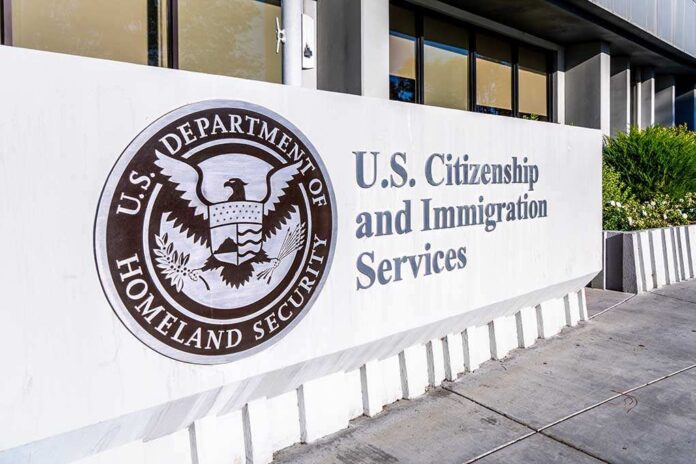
Arizona’s Proposition 314, a groundbreaking measure granting state police expanded powers to arrest illegal immigrants, has ignited a fierce debate over immigration control and state sovereignty.
At a Glance
- Arizona voters approved Proposition 314, allowing local police to arrest migrants suspected of illegal entry from Mexico
- The measure makes illegal entry a state crime, but enforcement is contingent on similar laws being active in other states for 60 days
- Immediate provisions include making selling fentanyl resulting in death a felony and criminalizing false documentation for employment or benefits by noncitizens
- Opponents argue the measure could lead to racial profiling and harm Arizona’s economy
- The law is expected to face legal challenges, as immigration enforcement is typically a federal responsibility
A Controversial Shift in Immigration Enforcement
Arizona’s Proposition 314 marks a significant departure from traditional immigration enforcement practices. The measure, approved by Arizona voters, grants local police the authority to arrest migrants suspected of illegally entering from Mexico, challenging the long-standing federal control over immigration matters. This contentious law makes illegal entry a state crime, allowing for local arrests and deportations. However, its enforcement is contingent on similar laws being active in other states for a period of 60 days.
The immediate provisions of Proposition 314 extend beyond immigration enforcement. The measure also makes selling fentanyl resulting in death a felony and criminalizes the submission of false documentation by noncitizens for employment or benefits. These additions reflect the multifaceted approach Arizona is taking to address both immigration and public safety concerns.
— Federation for American Immigration Reform (@FAIRImmigration) November 13, 2024
Opposition and Concerns
Despite its passage, Proposition 314 faces strong opposition from various groups, including civil rights organizations and local law enforcement. The American Civil Liberties Union (ACLU) of Arizona has condemned the measure, describing it as “a sweeping and divisive law that will incite the discrimination and harassment of immigrants.” This sentiment is echoed by many who fear the potential for racial profiling and civil rights violations.
Local sheriffs, including David Hathaway of Santa Cruz County and Chris Nanos of Pima County, have expressed strong reservations about enforcing the new law. They cite concerns over racial profiling and the significant strain it would place on county resources. The Arizona Department of Corrections anticipates substantial pressure on the prison system if the measure is fully implemented, with potential costs reaching $252 million by 2029.
Legal Challenges and Federal Conflict
Proposition 314 is expected to face significant legal hurdles. Immigration enforcement has traditionally been a federal responsibility, and similar state laws have been struck down in the past. In 2012, the Supreme Court invalidated most of Arizona’s Senate Bill 1070, which attempted to criminalize undocumented presence in the state. This precedent suggests that Proposition 314 may face similar scrutiny and potential invalidation.
The measure is part of a broader trend of anti-immigrant proposals from Republican state lawmakers across the United States. The League of United Latin American Citizens reported that state lawmakers proposed 233 anti-immigrant bills before Election Day, a significant increase from 2020. This surge in state-level immigration legislation reflects growing frustration with federal immigration policies and a desire for more localized control.
Looking Ahead
As Arizona moves forward with Proposition 314, the state finds itself at the center of a national debate over immigration control and state sovereignty. The measure’s implementation and potential legal challenges will be closely watched by other states considering similar legislation. Texas, for instance, is planning new border legislation for 2025, including a proposed Texas Department of Homeland Security.
The future of Proposition 314 and similar state-level immigration enforcement measures remains uncertain. As legal challenges unfold and federal responses develop, Arizona’s bold step into immigration control territory will continue to shape the national conversation on border security, state rights, and the complex landscape of American immigration policy.
Sources:
Troubled by illegal border crossings, Arizona voters approve state-level immigration enforcement
Arizona county sheriffs say they will not enforce immigration measure if passed
Arizona voters approve controversial state-level immigration enforcement
Arizona Passes Measure to Arrest Immigrants Who Enter US Illegally
State Laws Addressing Illegal Immigration in Limbo After Trump’s Reelection












